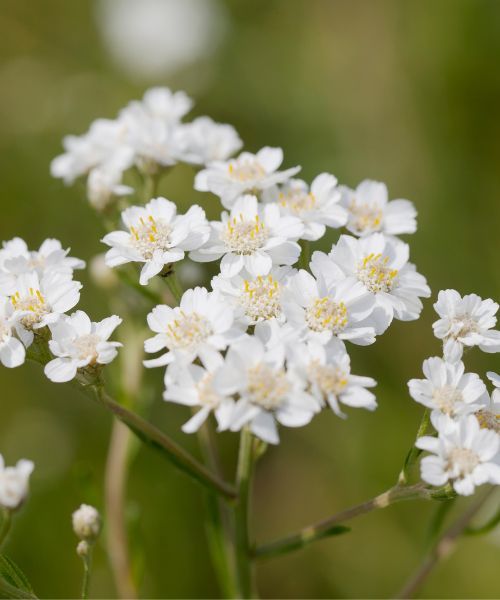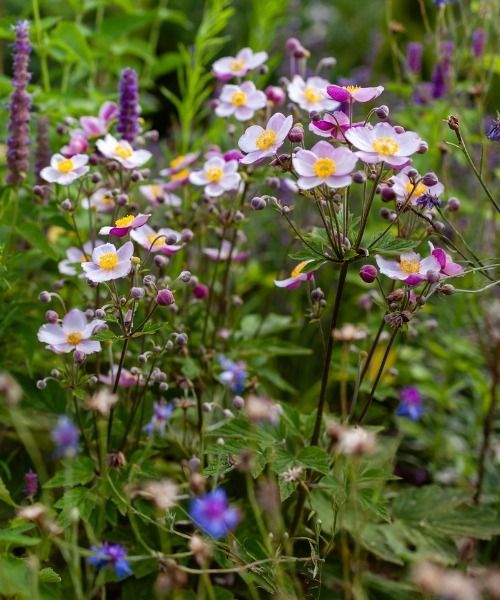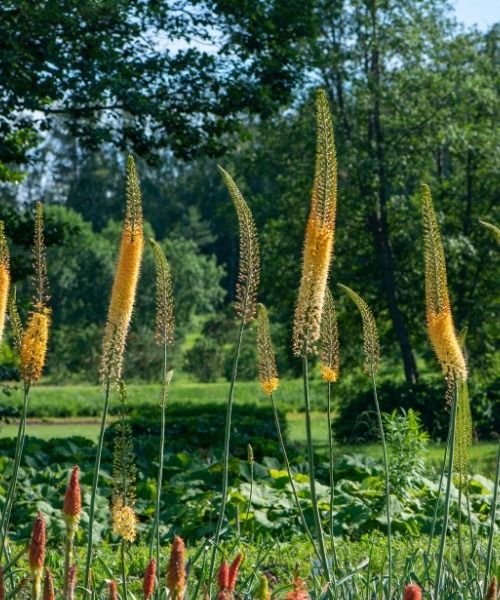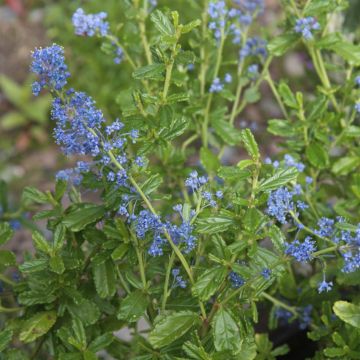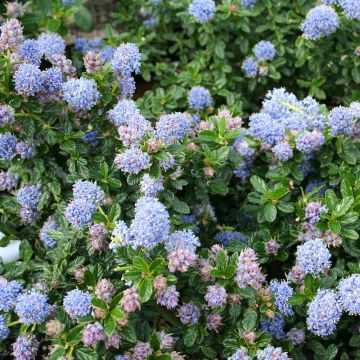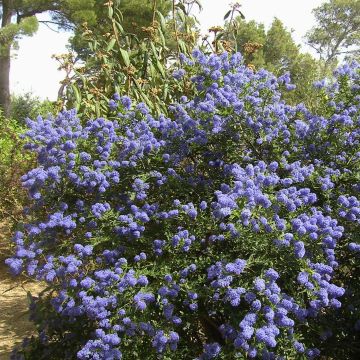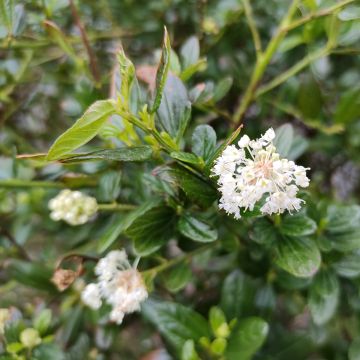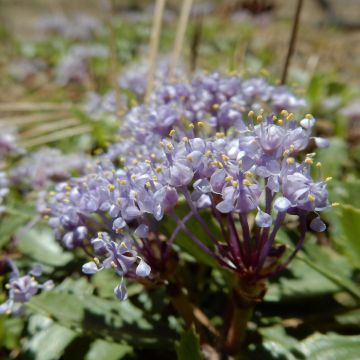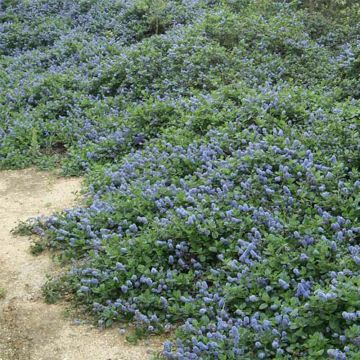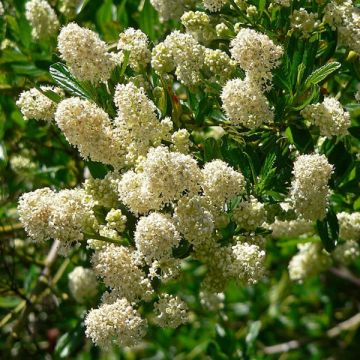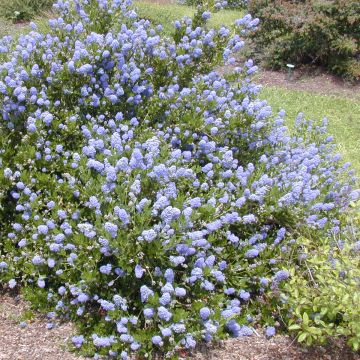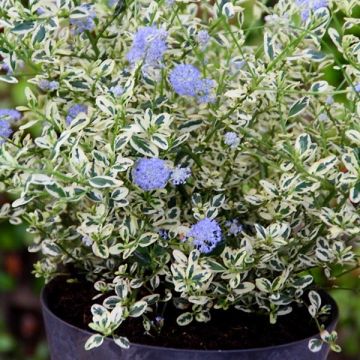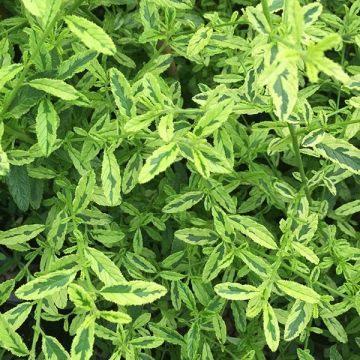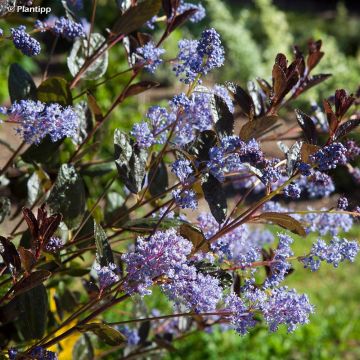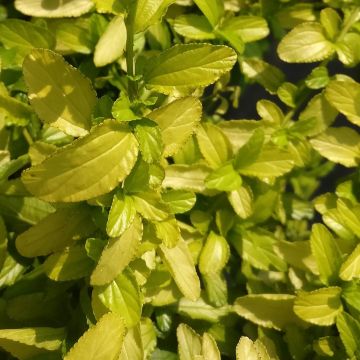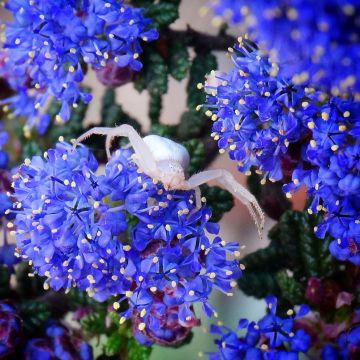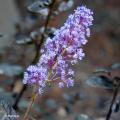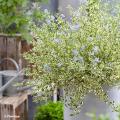Drought-tolerant Ceanothus
Does this plant fit my garden? Set up your Plantfit profile →

Available in 2 sizes
Available in 1 sizes
Available in 1 sizes
Available in 1 sizes
Available in 3 sizes
Available in 2 sizes
Available in 2 sizes
Available in 3 sizes
Available in 1 sizes
Available in 1 sizes
Available in 2 sizes
Available in 1 sizes
Available in 1 sizes
Available in 1 sizes
Available in 1 sizes
Available in 2 sizes
Available in 1 sizes
Available in 1 sizes
Available in 1 sizes
Available in 1 sizes
Available in 1 sizes
Available in 1 sizes
Available in 1 sizes
Available in 1 sizes
Available in 1 sizes
Available in 1 sizes
A selection of drought-tolerant Ceanothus, perfectly adapted to summer drought. These are evergreen California Lilacs like the Ceanothus Concha or the creeping ceanothus, whose blue flowering is a delight in spring. With exemplary sobriety, these bushes are perfect for landscaping dry gardens in the Mediterranean region or by the sea. With varying sizes and habits, they can be planted on large slopes, in rockeries or above a wall, where the soil is very well drained. Among the most rewarding, we can mention the Ceanothus griseus 'Yankee Point' which forms a wide mass and blooms for a long time, for 5 to 6 weeks between April and June. Or 'Italian Skies', compact, bushy, indifferent to limestone, and withstands very dry summers as well as frost. To form an exceptionally beautiful ground cover, for example, plant the Ceanothus 'Blue Sapphire', a variety that is both bushy and creeping, offering a long flowering of intense and deep sapphire blue. Many evergreen species and varieties are adapted to dry conditions. However, summer or autumn flowering cultivars such as 'Burkwoodii' and 'Automnal Blue' do not tolerate arid soils well. Preferring poor soils, dryland ceanothus fear moisture during both winter and summer. However, when they thrive, these plants require no maintenance.
The most drought-tolerant evergreen ceanothus are generally not very hardy. Depending on the varieties, they can withstand temperatures as low as -6/-10 °C (21.2/14°F) in rocky soil.
Haven't found what you were looking for?

































